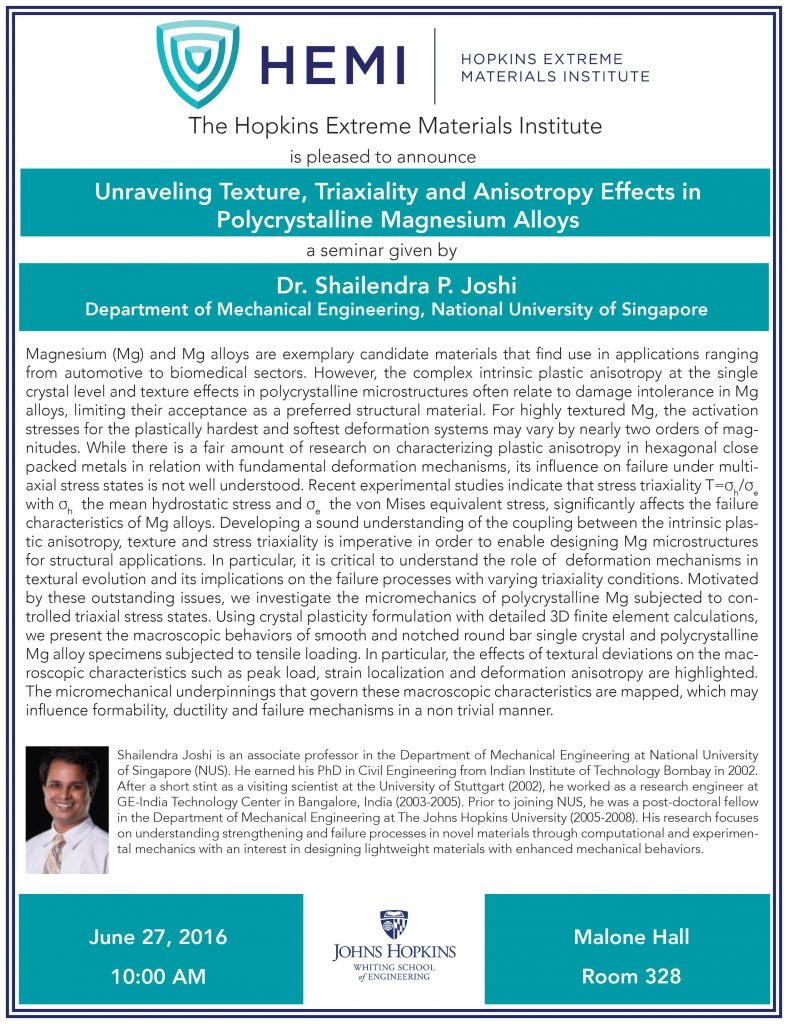June 27, 2016 @ 10:00 am - 11:00 am
Event Navigation
Unraveling Texture, Triaxiality and Anisotropy Effects in Polycrystalline Magnesium Alloys
Magnesium (Mg) and Mg alloys are exemplary candidate materials that find use in applications ranging from automotive to biomedical sectors. However, the complex intrinsic plastic anisotropy at the single crystal level and texture effects in polycrystalline microstructures often relate to damage intolerance in Mg alloys, limiting their acceptance as a preferred structural material. For highly textured Mg, the activation stresses for the plastically hardest and softest deformation systems may vary by nearly two orders of magnitudes. While there is a fair amount of research on characterizing plastic anisotropy in hexagonal close packed metals in relation with fundamental deformation mechanisms, its influence on failure under multiaxial stress states is not well understood. Recent experimental studies indicate that stress triaxiality with the mean hydrostatic stress and the von Mises equivalent stress, significantly affects the failure characteristics of Mg alloys. Developing a sound understanding of the coupling between the intrinsic plastic anisotropy, texture and stress triaxiality is imperative in order to enable designing Mg microstructures for structural applications. In particular, it is critical to understand the role of deformation mechanisms in textural evolution and its implications on the failure processes with varying triaxiality conditions. Motivated by these outstanding issues, we investigate the micromechanics of polycrystalline Mg subjected to controlled triaxial stress states. Using crystal plasticity formulation with detailed 3D finite element calculations, we present the macroscopic behaviors of smooth and notched round bar single crystal and polycrystalline Mg alloy specimens subjected to tensile loading. In particular, the effects of textural deviations on the macroscopic characteristics such as peak load, strain localization and deformation anisotropy are highlighted. The micromechanical underpinnings that govern these macroscopic characteristics are mapped, which may influence formability, ductility and failure mechanisms in a non trivial manner.
Seminar will be held at 10:00 AM in Malone 328.





